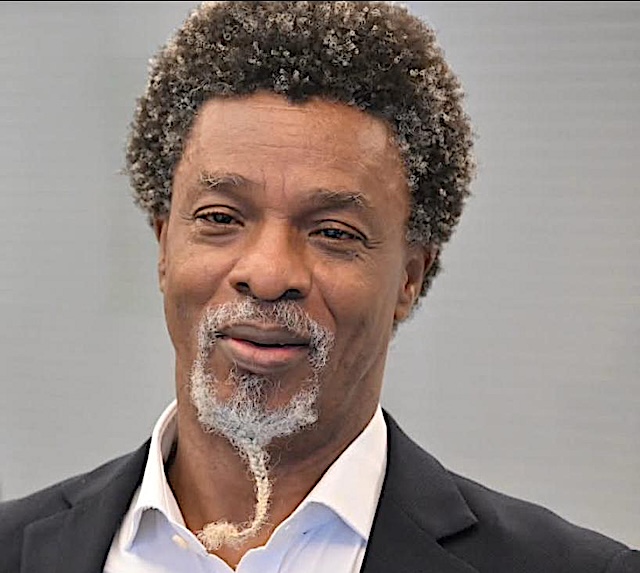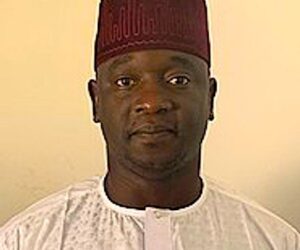
Over the years, the discussions that I have been involved in about how to make Nigeria modern invariably collapse into two questions. The first one: “How do we tilt the balance on the recruitment of personnel (and it doesn’t matter in what sphere of our national life) away from consideration of loyalty to that of competence?” Two, “How do we ensure that the marginal cost of breaking the law is higher than the returns to criminal conduct?” Both questions coalesce around a common preliminary. They agree that the continued reliance of our political ecosystem on patronage, ethnic balancing, and personal loyalty, as essential mechanisms of governance, won’t do if the goal is to make this space better.
Set aside the question of whether this has been the goal of our leadership since 1960. It ought to be. Denied this latter presumption, the question, “How do we professionalise the Nigerian state?” is jejune. The likes of Singapore and South Korea remind us that this is not a moral construct. Instead, it calls for the structural engineering of incentives, recruitment, and the prevailing political calculus, so that competence becomes the most rational choice for political and institutional actors. Civil service entry and promotion exams, transparent assessment centres, and the publication of qualification criteria for public sector jobs, ought to reduce the space for political interference. Wags will swear that Nigeria does have a merit-based recruitment process for its civil servants. Yet, the public’s experience of government ministries, departments, and agencies suggests severe performance shortcomings.
No true reform initiative can hope to succeed, though, by taking on the whole of the system failings simultaneously. End-to-start relationships between processes makes sequencing a sine qua non. Proper reform sequencing, in turn, pushes the need for changes to smaller, technocratic agencies to the fore. Transparent recruitment and staggering of the tenure of the leadership of these agencies in a way that insulates them from politics should help strengthen bodies like the central bank, regulatory authorities, and public procurement bodies – while demonstrating the value of competence over the medium term. Success here ought to stoke political appetite for wider reforms.
We still struggle with reforms to our electoral system – campaign finance transparency, internal party democracy, and limits on discretionary appointments. But surely, it can’t be that difficult to set clear performance indicators (tied to national development goals) for our ministers and senior officials – and to report on these regularly? At its most basic, a performance-focused government must deliberately publicise the efficiency of competent actors. The visibility that comes with this, reduces reliance on ethnic or personal loyalty by showing that competence delivers tangible benefits.
Talking of benefits, in order for these reforms to succeed, economic actors—public officials, firms, and citizens—must be persuaded that crime is irrational. The whole point in trying to ensure that the marginal cost of breaking the law exceeds the returns to law-breaking is the understanding that rational actors break the law when the expected gain from their malfeasance is larger than the expected costs.
If the transition from loyalty to competence requires incentivising competence internally and trying to insulate public administration from politics, then in order to increase the marginal cost of domestic malfeasance we need to adjust three phenomena: the probability of scofflaws being caught; the speed and certainty of punishment; and the severity of penalties.
The portmanteau of policy changes required to get this done include reducing human discretion in the interfaces between MDAs and the people, integrating MDAs data systems by cross-linking databases, and empowering audit and anti-corruption agencies, including through annual publication of their reports. Reforms to our judicial processes will matter, as well. Fines, licence suspensions, automated penalties, and asset freezes create immediate consequences, and do not require full court proceedings to work. By unclogging judicial timelines, they also increase deterrence. Would the constitution of special courts with defined case timelines dramatically increase the cost of wrongdoing? Probably. As will the insulation of prosecution from political influence.
Overregulation, a fallout of multiple agencies working in any sector of the economy, makes compliance costly, creating incentives for bribery. Simplify regulations, create one-stop interfaces between the populace and government and its agencies, and opportunities for rent-seeking will thin out. Freer markets will receive help from this too. On their own, they provide legal avenues for enterprise – necessary if our large army of young people are to find work, and the economy is to grow. With the weight of bureaucracy as heavy as it currently is, and regulators continuing to ignore cartels that stitch markets against consumers, the informal economy will remain the only practical path to entrepreneurs. Inevitably, we simply normalise, illegal activity.
Evidently, competence-based governance and credible enforcement are mutually reinforcing categories. The virtual loop that their interplay creates has competent institutions improving enforcement, strong enforcement reducing political pressure to appoint loyalists instead of professionals, reduced corruption creating fiscal space for performance-based reforms, and performance success increasing public trust and reducing patronage politics. The dilemma is that if not the full institutions, Nigeria has the scaffolding to construct all of these in place. What we lack is the political will to make them work as they ought to. Sadly, there are no known incentives, or reform platforms for kicking off political will.
Uddin Ifeanyi, journalist manqué and retired civil servant, can be reached @IfeanyiUddin.












